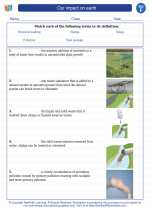Our impact on earth -> atmospheric pressure
Atmospheric Pressure
Atmospheric pressure is the force exerted by the weight of the air above us. It is caused by the gravitational pull of the Earth on the molecules in the air.
Factors Affecting Atmospheric Pressure
Several factors can affect atmospheric pressure:
- Altitude: As altitude increases, the atmospheric pressure decreases because there is less air above pushing down.
- Temperature: Warmer air is less dense and exerts less pressure, while colder air is denser and exerts more pressure.
- Weather Systems: High-pressure systems are associated with clear, dry weather, while low-pressure systems are associated with cloudy, wet weather.
Units of Measurement
Atmospheric pressure is often measured in units of pressure such as millibars (mb) or inches of mercury (inHg).
Effects of Atmospheric Pressure
Changes in atmospheric pressure can have various effects on the environment and living organisms. For example, changes in pressure can affect weather patterns and can cause discomfort for some people, especially in their ears and sinuses.
Studying Atmospheric Pressure
When studying atmospheric pressure, it's important to understand the concept of pressure, how it is measured, and the factors that can affect it. Practice using barometers and understanding how to interpret weather patterns based on atmospheric pressure readings.
Additionally, it's valuable to learn about the historical development of the concept of atmospheric pressure and its role in weather forecasting and aviation.
.◂Science Worksheets and Study Guides Sixth Grade. Our impact on earth
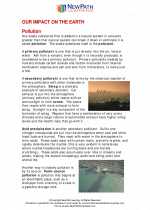
 Worksheet/Answer key
Worksheet/Answer key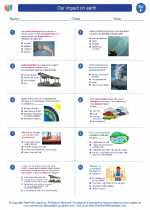
 Worksheet/Answer key
Worksheet/Answer key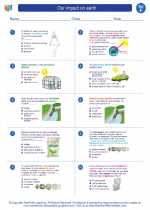
 Worksheet/Answer key
Worksheet/Answer key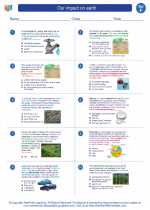
 Vocabulary/Answer key
Vocabulary/Answer key